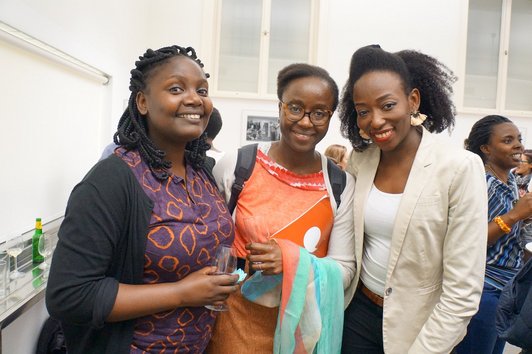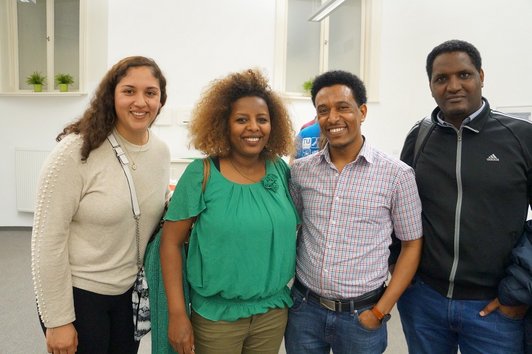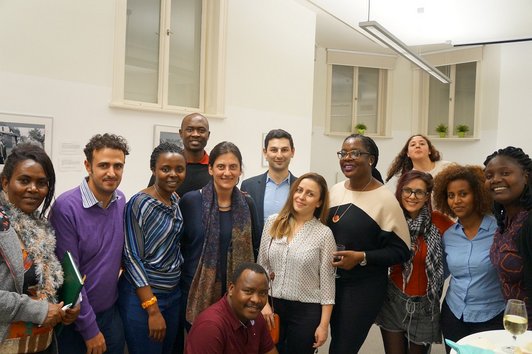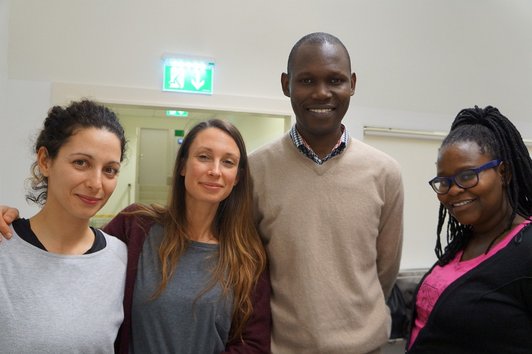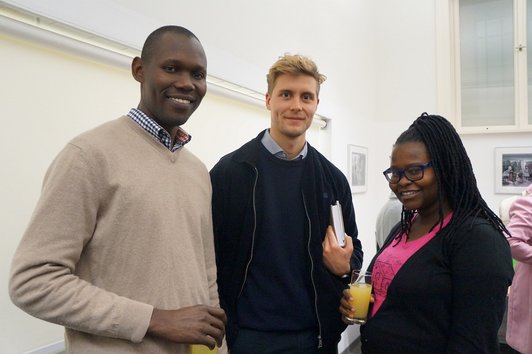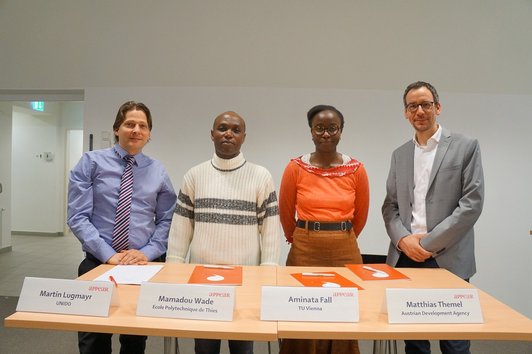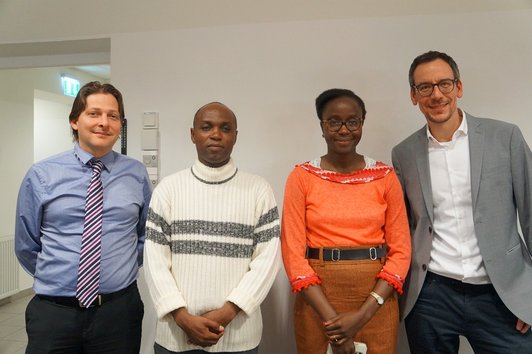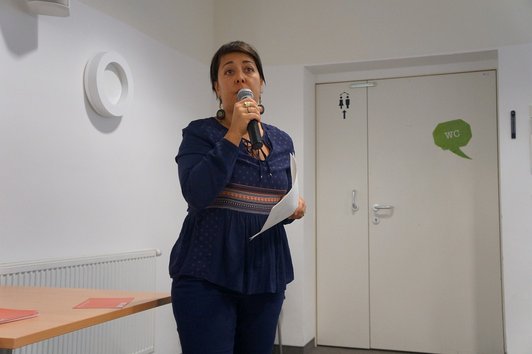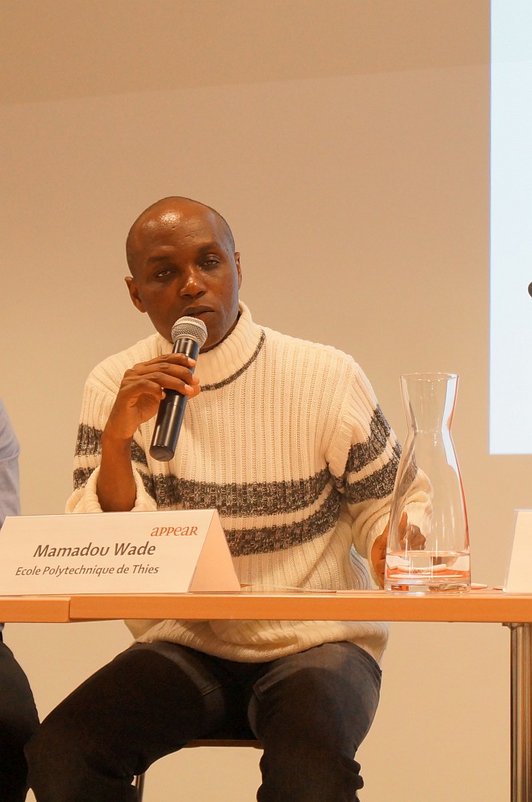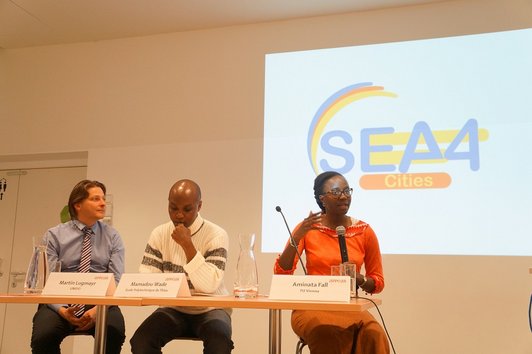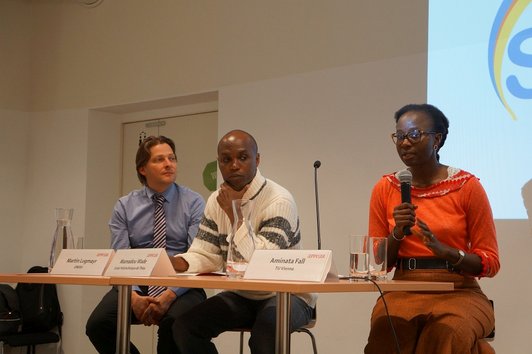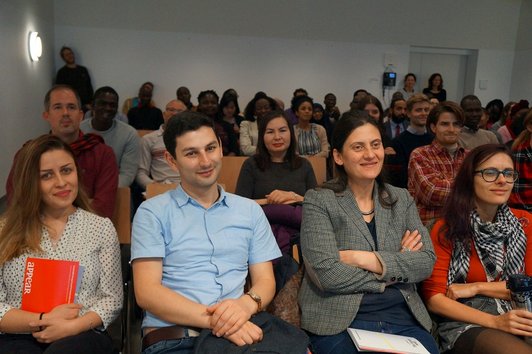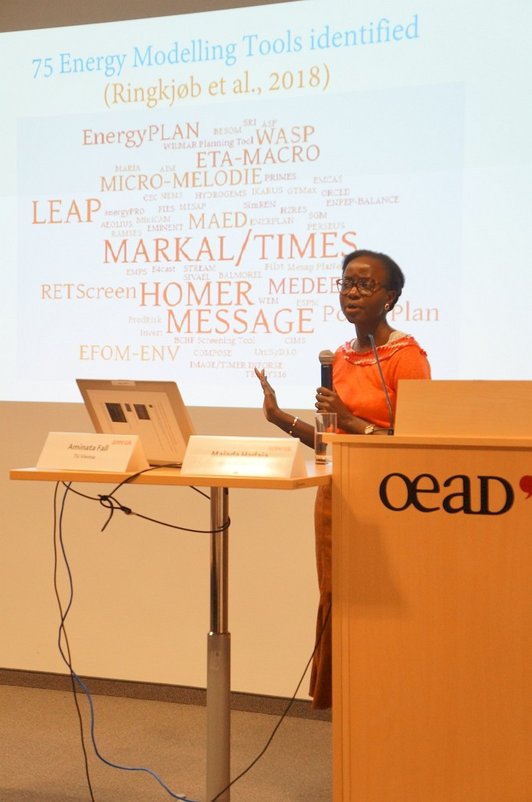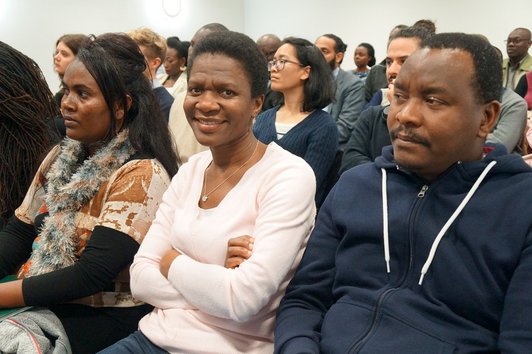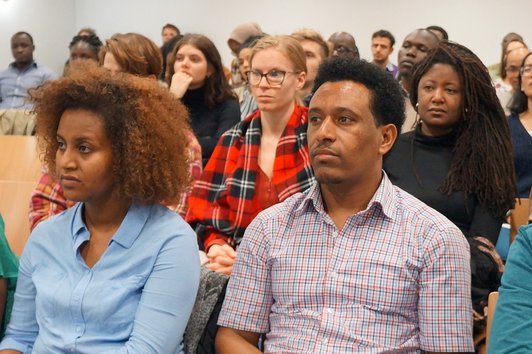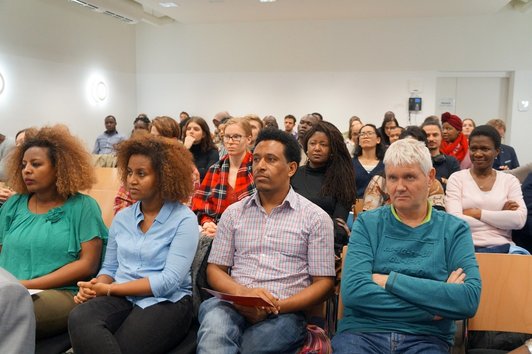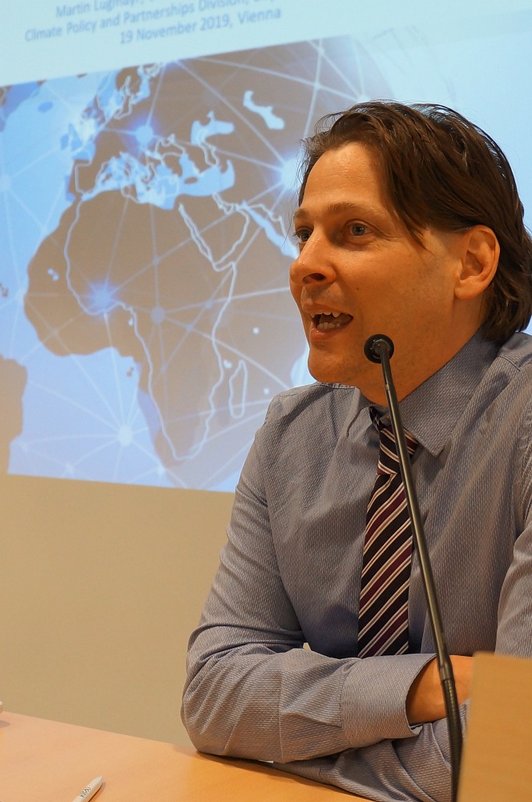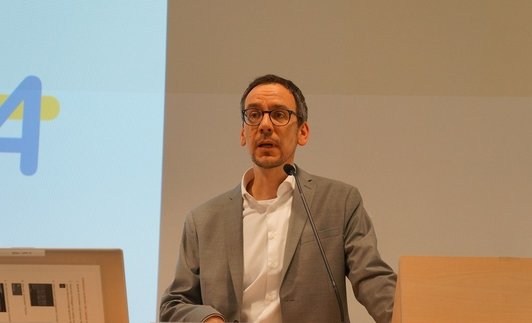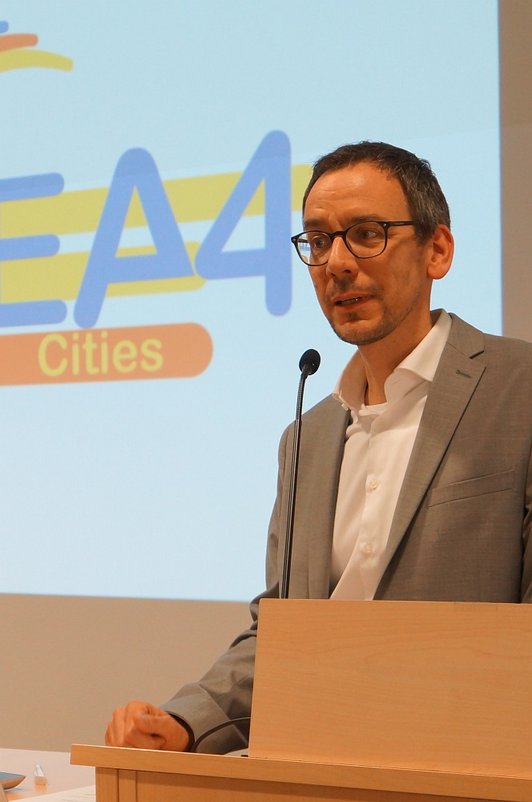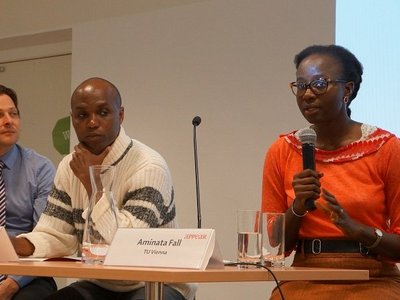

In his welcome remarks, Matthias Themel, representing the Austrian Development Agency (ADA), emphasized the importance for the agency of energy sustainability, which is reflected in many projects supported by ADA in Africa. Projects like SEA4cities, prepare the ground for the introduction of new technologies and policies towards access to clean and affordable energy.
Providing background information on the situation of renewable energy in developing countries, Martin Lugmayr from UNIDO, stressed the long lasting impact of decisions made on energy infrastructure and the need to act now. UNDIO supports developing countries to mitigate the barriers limiting deployment of renewable energy and energy efficiency. The aim, in compliance with the Sustainable Development Goal (SDG) 7, is to ensure access to affordable, reliable, sustainable and modern energy for all by 2030. In order to achieve this aim Mr. Lugmayr highlighted the importance of cities, as the “backbone of every economy”. When answering the question whether we are on track to reaching the SDG 7, Mr. Lugmayr expressed some doubts. He explained that globally still 80% of total energy consumption comes from conventional resources, and only 10 % from renewables. Growth of global renewable energy remains slow. Progress has been made over the last 40 years in terms of access to energy and reliable energy services. However, some regions such as sub-Saharan Africa and South India still lag behind. In sub-Saharan Africa only 43% have access to electricity and 16% to clean energy for cooking. However Mr. Lugmayr also stressed that “we should not see this situation only as a challenge, but as a business opportunity, in particular for decentralized renewable energy solutions” which will play an important role in the future.
In Senegal, the energy sector is still dominated by non-renewables, according to Mamadou Wade. Pending the exploitation of its newly discovered oil and gas resources, Senegal is totally dependent on imports to meet its energy needs. In terms of installed energy generating capacity, about 83 % are thermal power plants. Only 11% come from solar power and 6% from hydropower. In order to ensure supply of the future energy needs in quantity and quality at a competitive cost, further wind and solar power plants are under development to end the predominance of conventional fuels.
The APPEAR Project Sustainable Energy Access for Sustainable Cities |SEA4cities was presented by project coordinator Aminata Fall. In her presentation she focused on the Energy System Planning Model (ESPM) (tool), which had been developed in the framework of the project to support modelling cities’ energy systems. Mrs. Fall explained that the first energy modelling systems were developed in the 1970s, following the first energy crisis, to capture the interdependence between the energy system and the general economy, to reduce dependence on fuel imports, and to reduce the impact on the environment of energy strategies. The tool developed by SEA4cities is a software adapted to the needs of cities in developing countries, with Dakar as framework for development and validation. Mrs. Fall gave examples of potential users (from private to corporate) and how they can make use of the software to reduce their energy consumption and improve demand efficiency. The declared aim is to “trigger democratization in energy access and energy transition” by making this tool as widely available as possible. The final Q&A session concerned the practicability and usability of the online tool. According to Mrs. Fall, she designed the model to make it easy to use also targeting non-experts, taking her mother as a representative of the target group.
For further information on the SEA4cities visit the project website.
To access the ESPM tool click here (for French version, English Version is in implementation)
Panellists:
Martin Lugmayr is coordinator of the Global Network of Regional Sustainable Energy Centres Program that has been created by the United Nations Industrial Development Organization (UNIDO), in cooperation with the Austrian Development Agency (ADA). Before joining UNIDO, he worked on international energy policy at the Austrian Ministry for Foreign Affairs and for the Global Forum on Sustainable Energy.
Mamadou Wade is senior lecturer on mechanics of energy systems, and head of the Department for Academic Affairs of Ecole Polytechnique Thies (EPT), Senegal. He coordinates for EPT the University Programme on Renewable Energies and Energy Efficiency in Senegal (PESEREE) jointly implemented by four universities of Senegal, with support of the German Academic Exchange Service (DAAD). Professor Wade is national coordinator of SEA4cities at Ecole Polytechnique Thies.
Aminata Fall is research associate and PhD candidate in the TU Vienna Energy Economics Group. Before joining the TU, she was Sustainable Energy expert at UNIDO Vienna, working on implementation of projects in Cape Verde, DR Congo, Mozambique, and Senegal. Prior to this assignment, she worked at the ECOWAS Centre for Renewable Energy and Energy Efficiency in Cape Verde. Aminata Fall is coordinator of SEA4cities at TU Vienna.
Welcome remarks: Matthias Themel, Austrian Development Agency
Facilitator: Maiada Hadaia, OeAD

